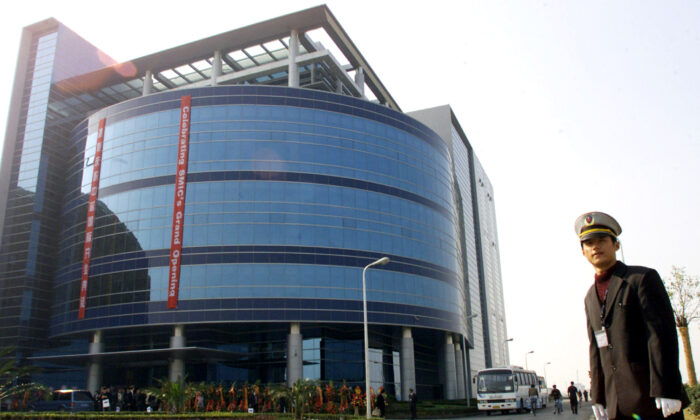
This article was originally published on Epoch Times - US. You can read the original article HERE
Rep. Michael McCaul (R-Texas), chair of the Foreign Affairs Committee, on Nov. 4 urged the Commerce Department to enforce existing export controls meant to prevent key Chinese communist regime-tied companies such as Huawei and Semiconductor Manufacturing International Corporation (SMIC) from obtaining advanced technologies for national security reasons.
He warned that the U.S. government has assumed that Chinese companies would abide by the export control laws rather than find workarounds, and evidence suggests this has allowed companies tied to the Chinese military to “leapfrog” the United States in areas of technological advancement.
“There is a growing bipartisan frustration that BIS refuses to act on fact-based reports that detail Huawei’s efforts to evade and undermine U.S. export controls,” McCaul wrote to the Department of Commerce’s Bureau of Industry and Security (BIS) Under Secretary Alan Estevez.
In the Nov. 4 letter, McCaul points out that the recent Huawei incident is not an outlier and that Chinese companies have taken advantage of loopholes to obtain technologies that should have been blocked to them.
He requested that the export controls be expanded upon. The rules created in 2020 were limited, such as banning SMIC from obtaining tools “uniquely capable” of producing 10-nanometer (nm) and below chips, McCaul wrote. As a result, “over a six-month timeframe BIS approved $40 billion worth of exports to SMIC and denied fewer than 1% of licenses,” according to data released by the House Foreign Affairs Committee in October 2021.
As it stands, the current rules limit BIS from denying licenses to companies that, in turn, supply SMIC, McCaul said, while also assuming that SMIC is properly abiding by U.S. export control laws.
“The current SMIC licensing policy ignores PRC [People’s Republic of China] laws that give its government explicit authority to compel the transfer of any item, regardless of whether such a transfer violates U.S. law,” he wrote.
“Foreign persons could be compelled by PRC law to violate U.S. export controls by transferring items to SMIC South. U.S. companies and BIS have essentially no means to verify and stop an illicit transfer because of the PRC’s de facto and de jure restrictions on due diligence.”
Lawmakers have increasingly expressed concerns that Chinese military-tied companies such as Huawei and SMIC are skirting U.S. export control laws.
McCaul said in the new letter that analysts predict SMIC may soon produce more than 1 million advanced graphic processing units for Huawei and that this production capacity undermines current export controls.
“SMIC South’s breakthroughs are a smoking gun that a violation of U.S. export control laws is occurring,” he wrote.
If BIS had denied SMIC access to advanced technologies, it would have lacked “access to the U.S. tools, parts, and components needed to fabricate chips,” he said.
McCaul hypothesized that the Chinese companies had stockpiled enough technology to “help China leapfrog the United States in the development of artificial general intelligence.”
“It appears that BIS likely approved enough licenses to help SMIC stockpile all the items it needs, and the paper promises of export licenses that underly BIS’s entire PRC licensing policy are being systemically violated,” he wrote.
McCaul urged BIS to inspect SMIC facilities in China to verify in person that licenses are not being violated.
“If the PRC is unwilling to immediately agree to a comprehensive audit of all SMIC facilities and its books, BIS should pause all existing licenses for SMIC,” the letter reads. “BIS must make clear that U.S. export control laws are enviable.”
The Epoch Times contacted BIS for comment but did not receive a response by publication time.
This article was originally published by Epoch Times - US. We only curate news from sources that align with the core values of our intended conservative audience. If you like the news you read here we encourage you to utilize the original sources for even more great news and opinions you can trust!












Comments